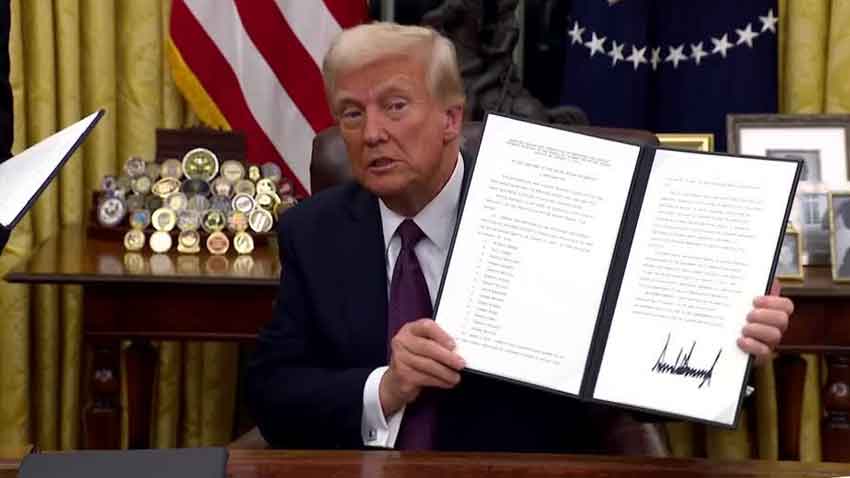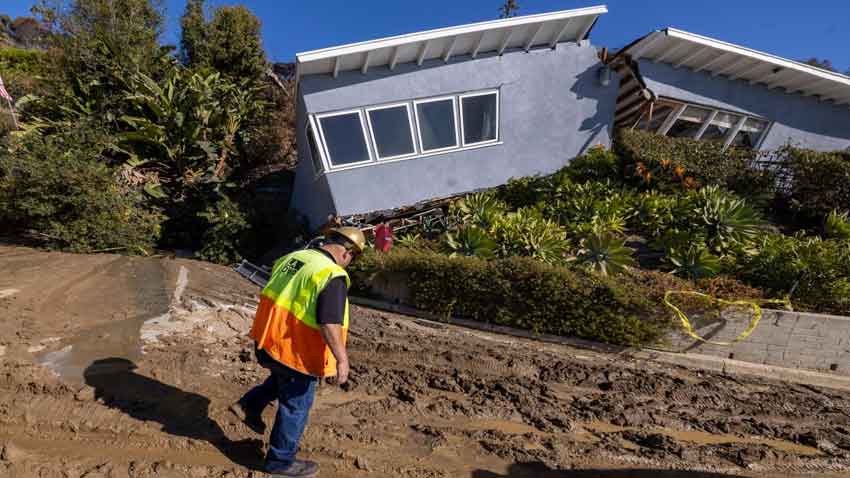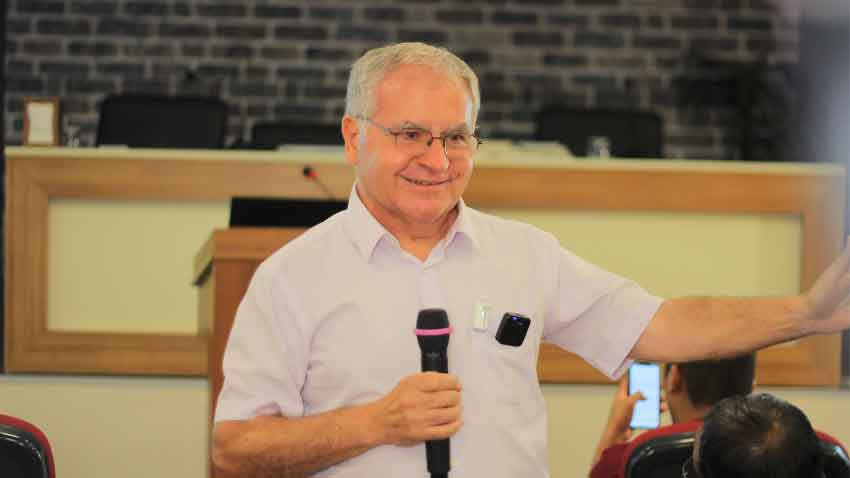
After a day of ceremony, Trump signed a series of executive actions to curb immigration and roll back environmental regulations and racial and gender diversity initiatives. He did not take immediate action to raise tariffs, a key campaign promise, but said he could impose 25% duties on Canada and Mexico on Feb. 1.
His decision to pardon supporters who attacked the U.S. Capitol on Jan. 6, 2021, is sure to enrage police, lawmakers and others whose lives were put at risk during an unprecedented episode in modern U.S. history.
Roughly 140 police officers were assaulted during the attack, with some sprayed with chemical irritants and others struck with pipes, poles and other weapons.
Trump ordered 14 leaders of the far-right Oath Keepers and Proud Boys militant groups, who were serving long prison sentences, released from prison early, but left their convictions intact.
Earlier in the day, Trump, 78, took the oath of office in the Capitol Rotunda, where a mob of his supporters had rampaged on Jan. 6 in an unsuccessful attempt to reverse his 2020 loss to Joe Biden.
At the ceremony, Trump portrayed himself as a savior chosen by God to rescue a faltering nation. His inauguration amounts to a triumphant return for a political disruptor who survived two assassination attempts and won election despite a criminal conviction
Trump is the first president in more than a century to win a second term after losing the White House and the first felon to occupy the White House. The oldest president ever to be sworn in, he is backed by Republican majorities in both chambers of Congress.
Shortly after he took the oath of office, U.S. border authorities shut down a program that allowed hundreds of thousands of migrants to enter the U.S. legally by scheduling an appointment through a smartphone.
Nearly 1,660 Afghans who had been cleared by the U.S. government to resettle in the U.S., including family members of active-duty U.S. military personnel, were having their flights canceled under a Trump order suspending U.S. refugee programs, a U.S. official and a leading refugee resettlement advocate said on Monday.
BORDER EMERGENCY DECLARED, CLIMATE DEAL NIXED
At the White House, Trump signed an order that declared a national emergency at the U.S.-Mexico border, which would unlock funding and allow him to dispatch troops there. He signed an order that would end a policy that confers citizenship to those born in the United States.
Trump once again withdrew the United States from the Paris climate deal, removing the world s biggest historic emitter from global efforts to fight climate change for the second time in a decade.
Other orders revoked Biden administration policies governing artificial intelligence and electric vehicles. He also imposed a freeze on federal hiring and ordered government workers to return to the office, rather than working from home. He also signed paperwork to create a "Department of Government Efficiency," an outside advisory board headed by billionaire Elon Musk that aims to cut large swaths of government spending.
"We have a government that has given unlimited funding to the defense of foreign borders, but refuses to defend American borders, or more importantly, its own people," Trump said.
Numerous tech executives who have sought to curry favor with the incoming administration - including the three richest men in the world, Tesla and SpaceX CEO Elon Musk, Amazon founder Jeff Bezos and Meta CEO Mark Zuckerberg - had prominent seats on stage, next to cabinet nominees and members of Trump s family.
Trump said he would send astronauts to Mars, prompting Musk - who has long talked about colonizing the planet - to raise his fists.
Trump vowed to change the name of the Gulf of Mexico to the Gulf of America and repeated his intention to take back control of the Panama Canal, one of several foreign policy pronouncements that have caused consternation among U.S. allies.




